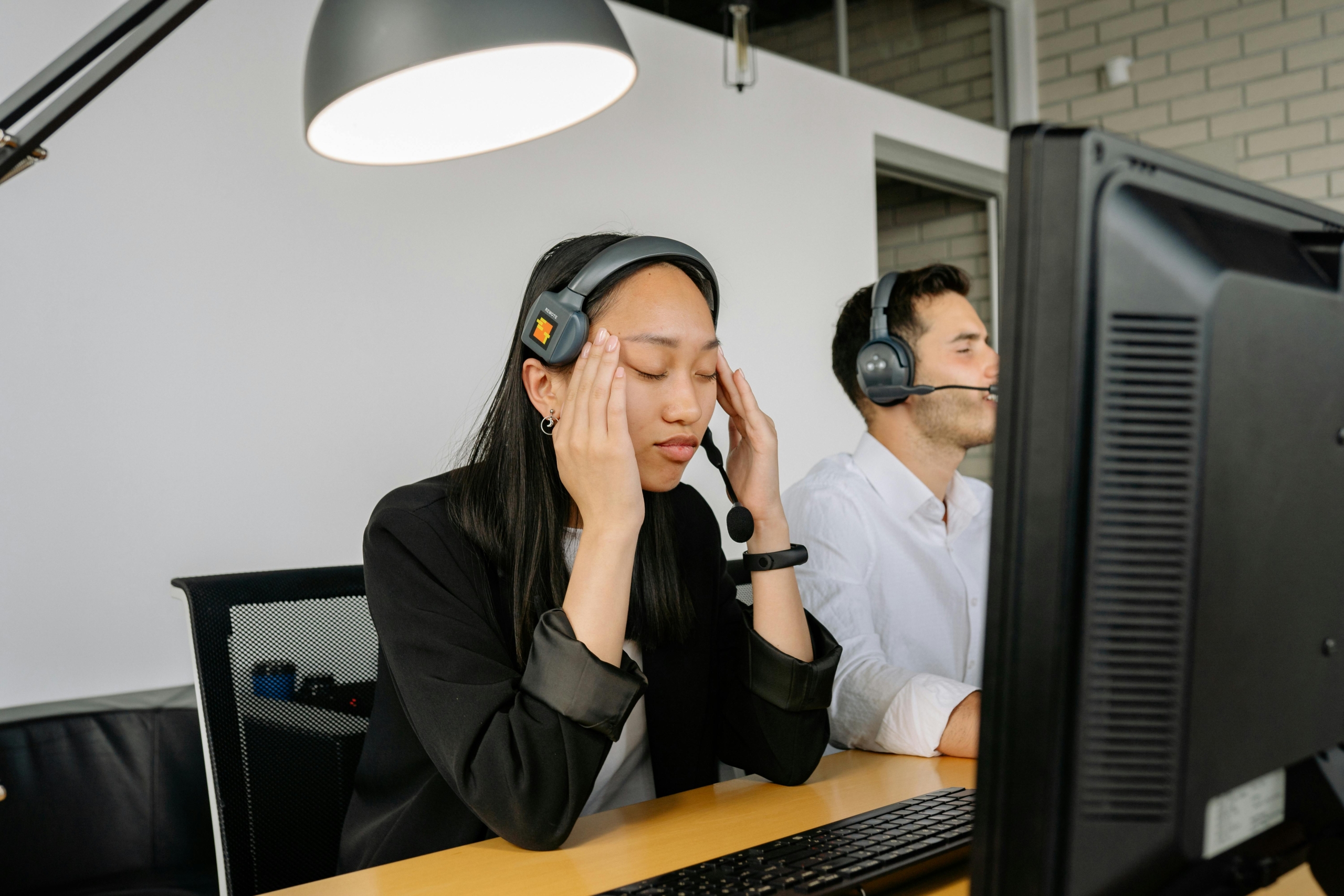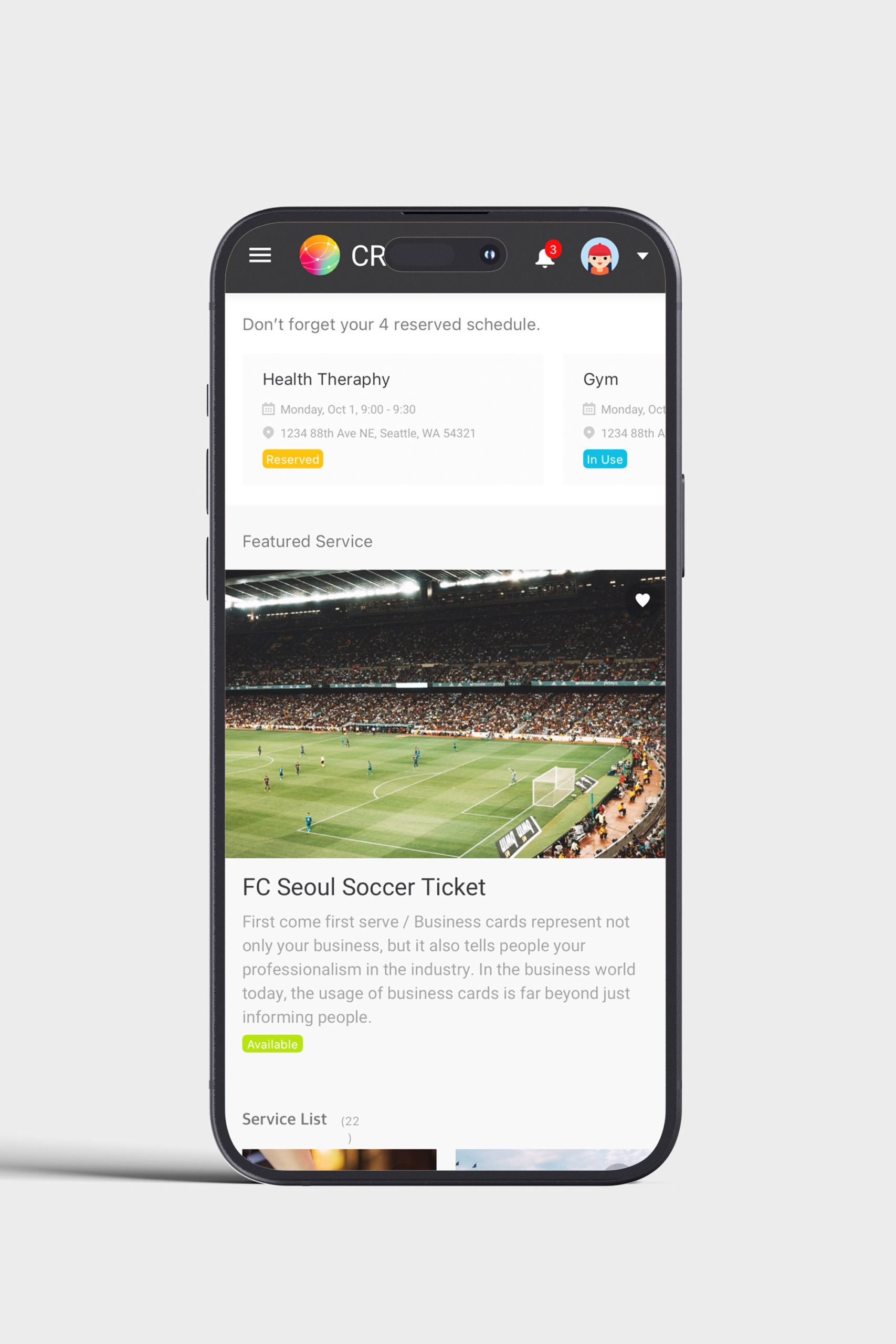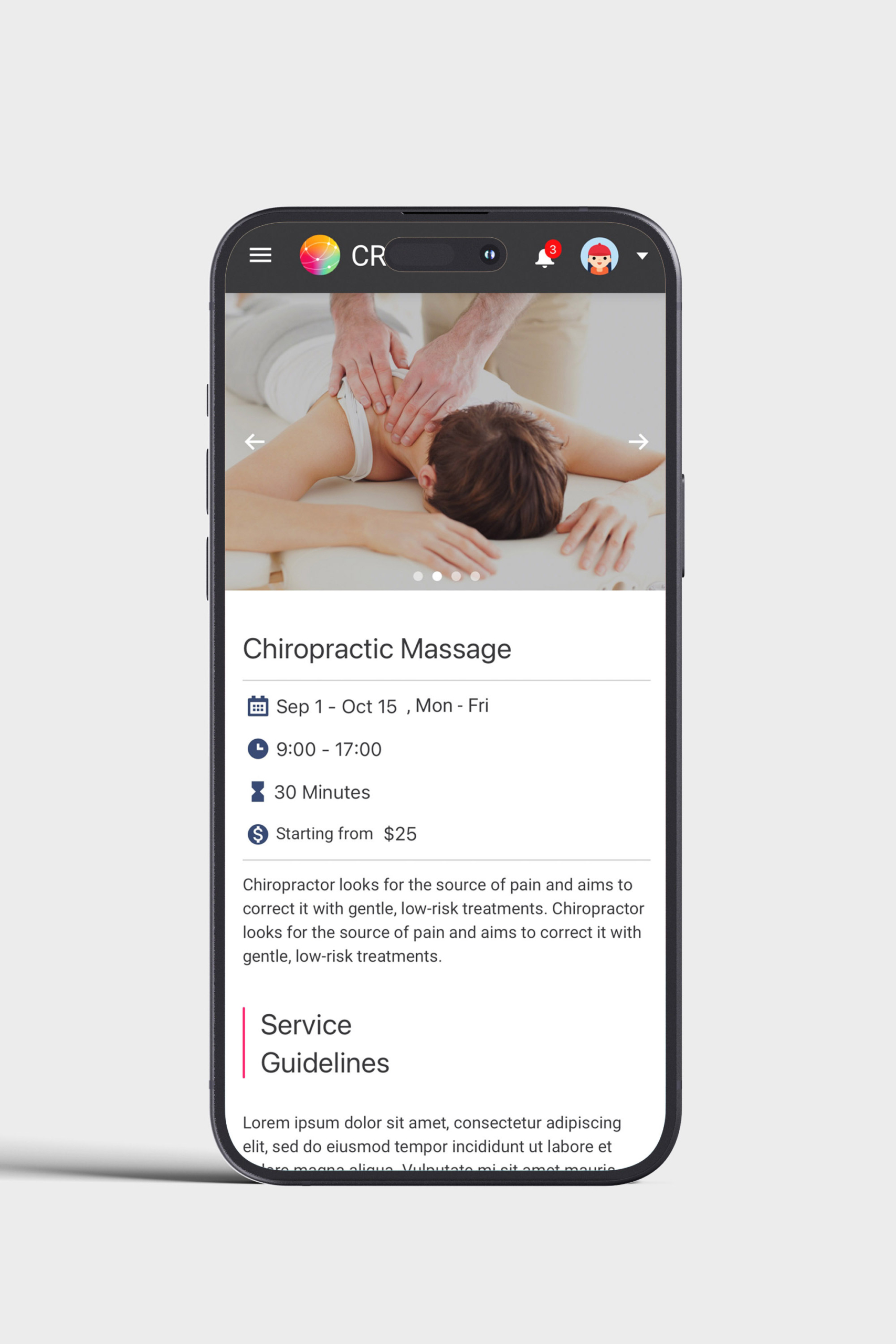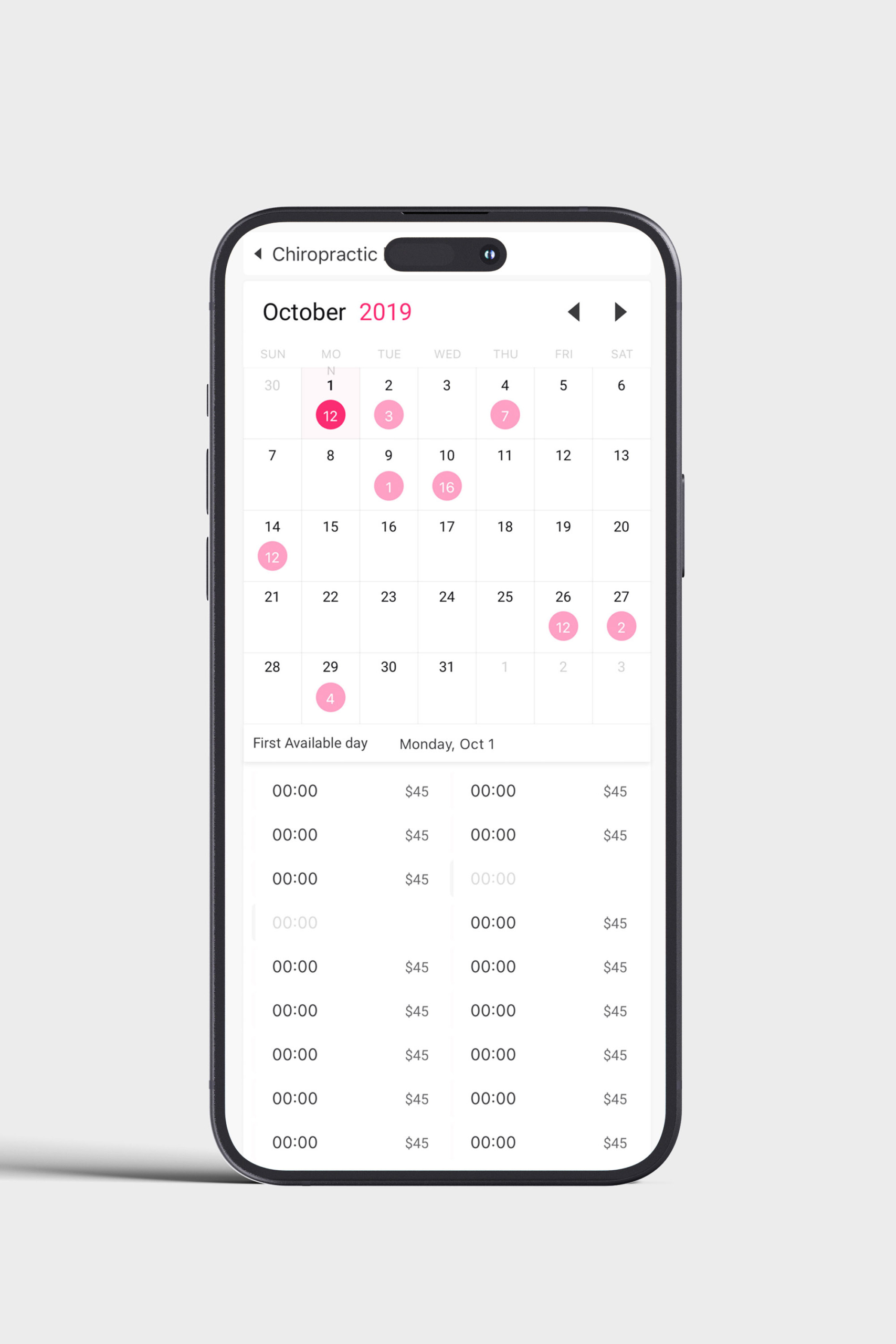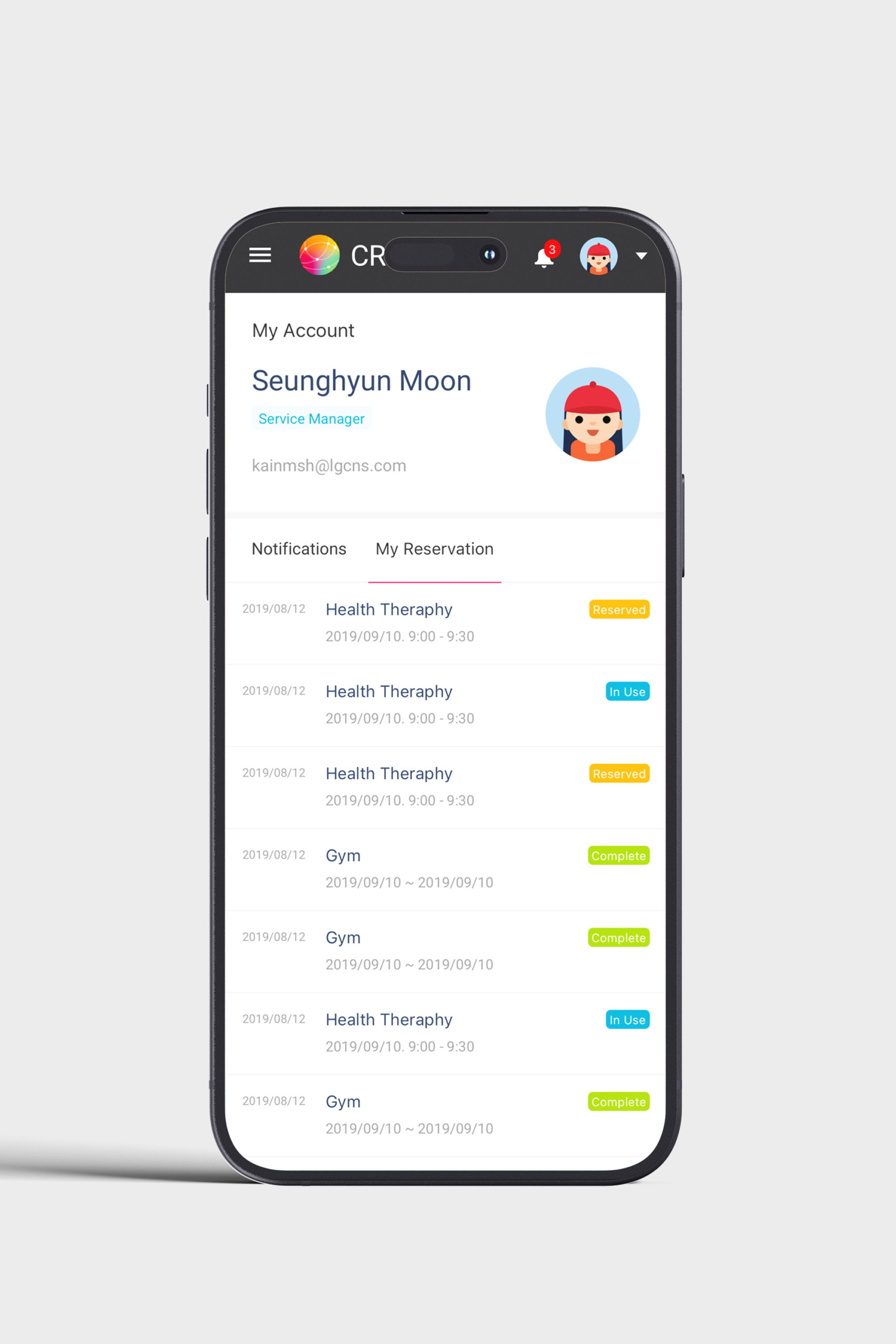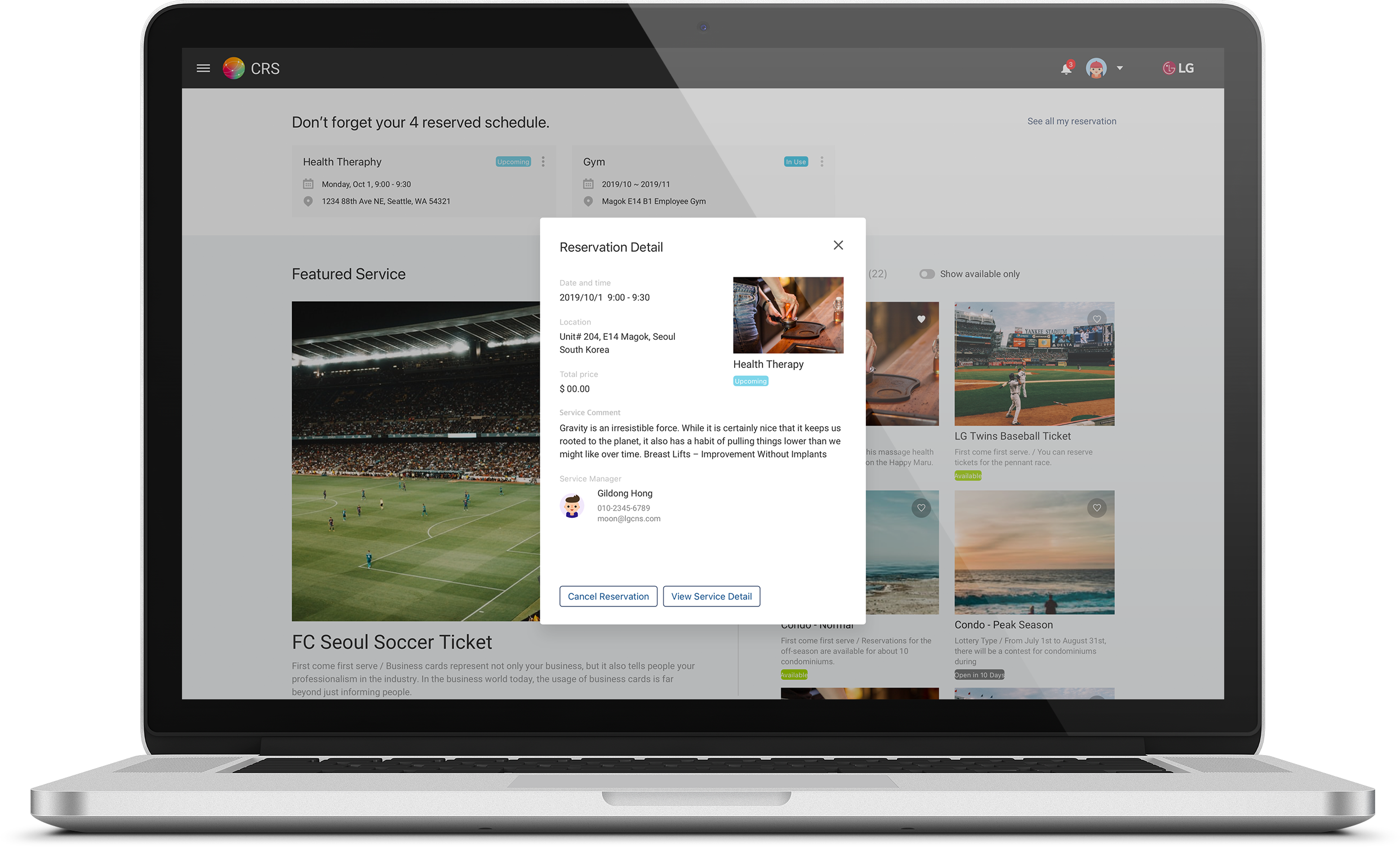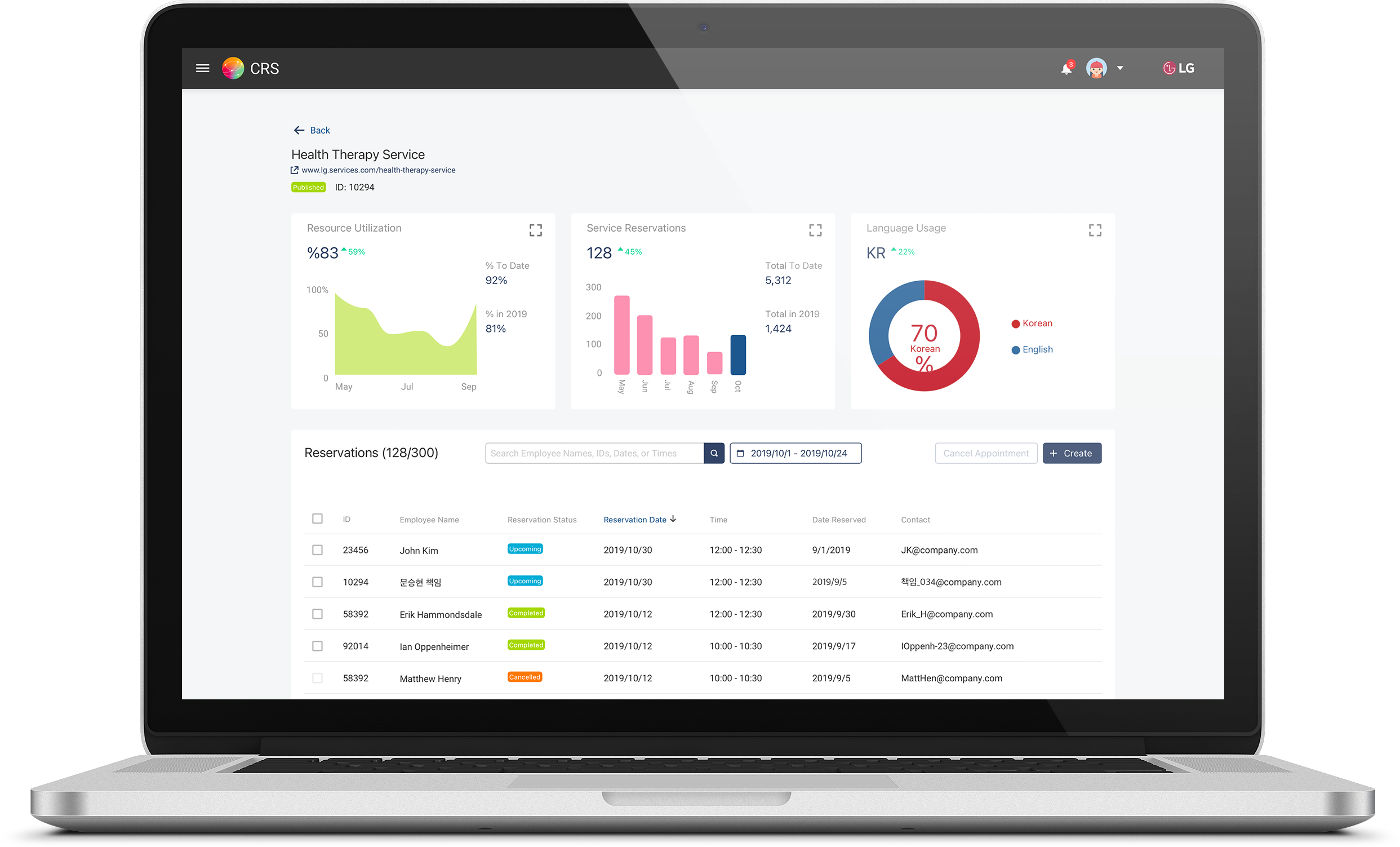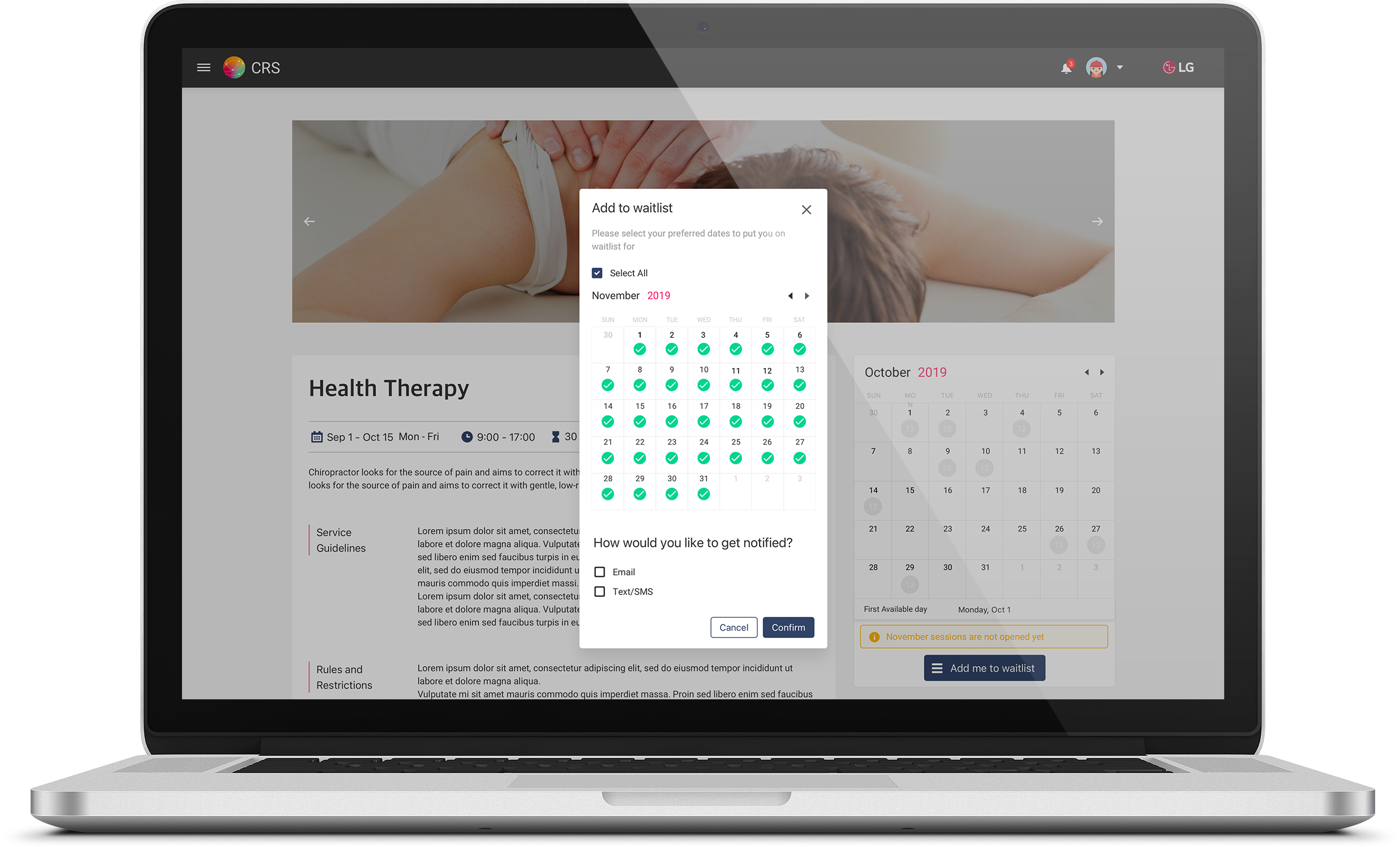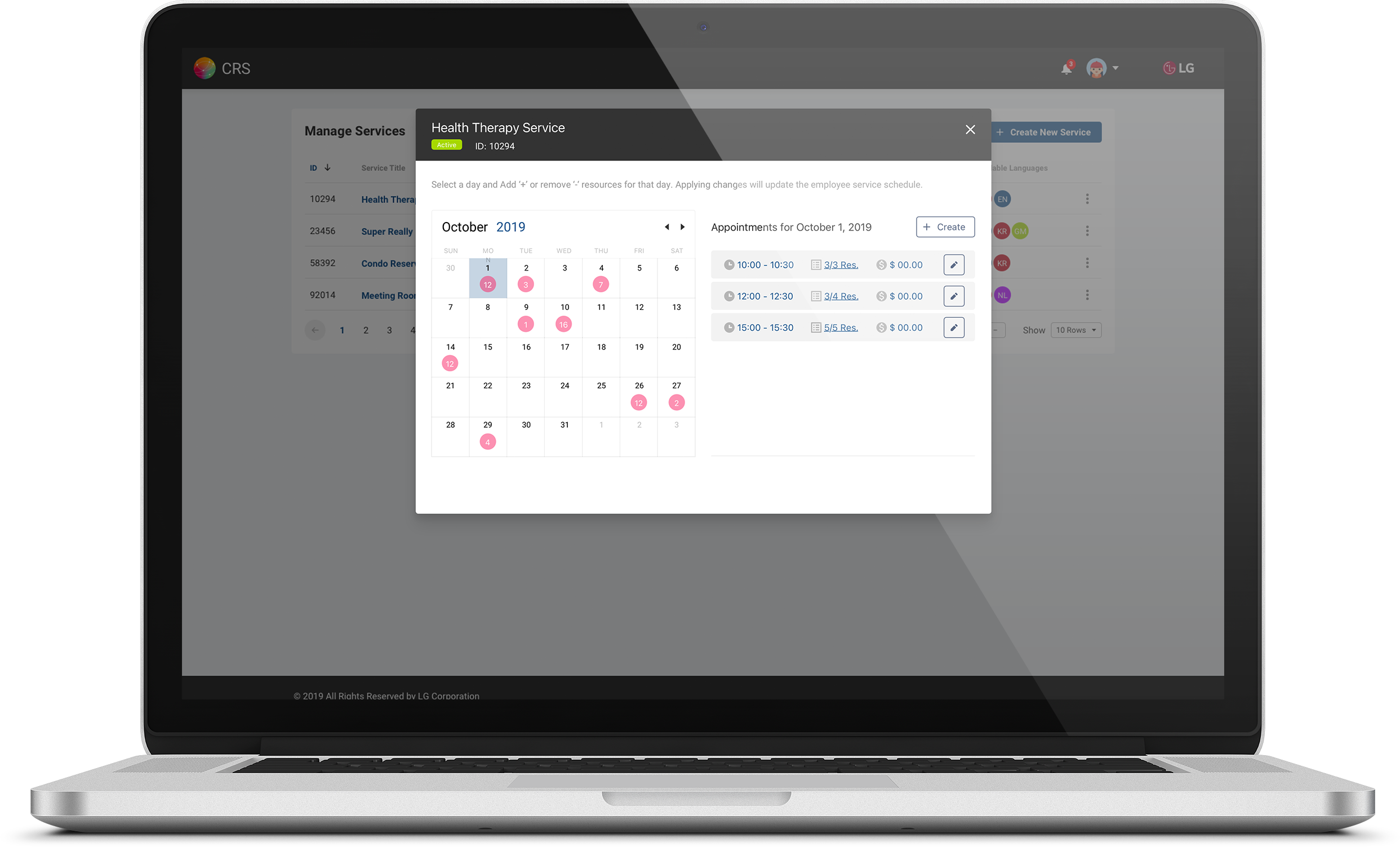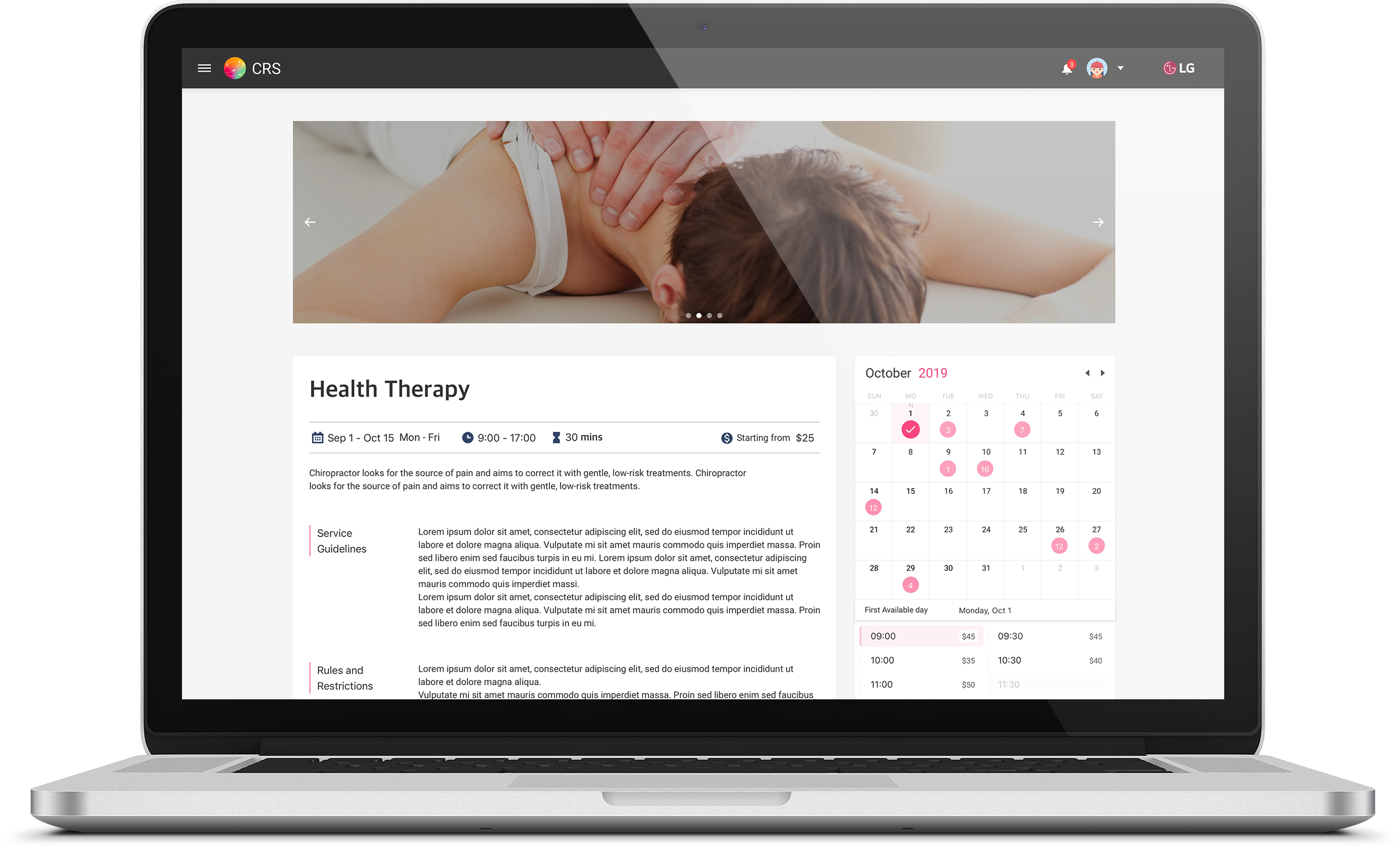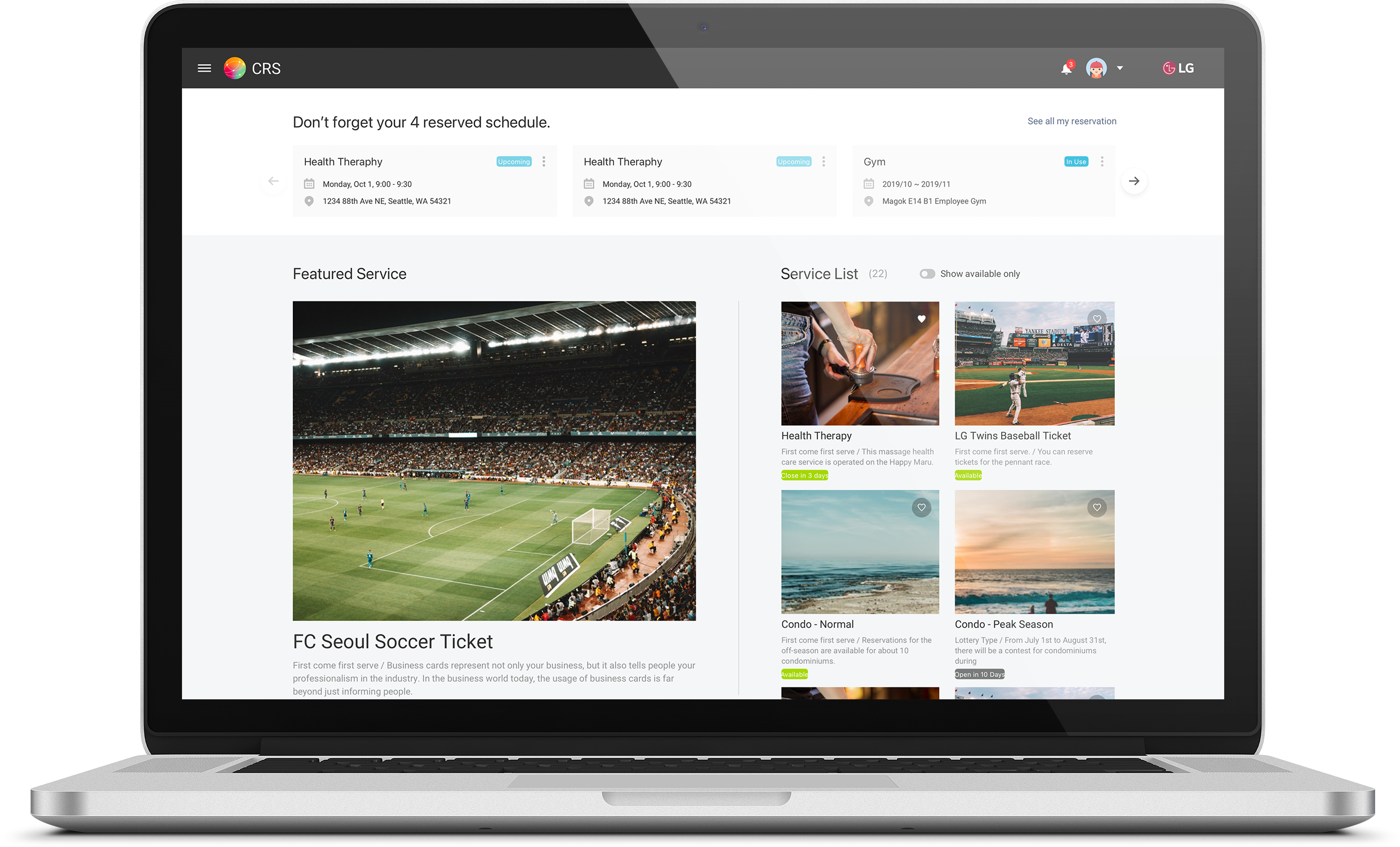Experience Strategy | UX/UI Design
Optimizing LG’s employee reservation system for seamless service booking
Corporate Employee Services
Digital Reservation
Challenge
LG’s internal service reservation platform, CRS, faced inefficiencies due to a manual Excel sheet and email-based booking process. Employees struggled with delays, lack of transparency, and booking conflicts when reserving services like health therapy, gyms, and corporate resources. The challenge was to design a structured, automated, and user-friendly system that streamlined bookings and ensured fair allocation of resources.
How did we engage?
We collaborated with LG to analyze abstraction patterns in their reservation system, mapping out different service types and their respective rules. Our team worked closely with stakeholders, service providers, and employees to identify pain points, design an intuitive UX/UI, and develop a flexible yet structured booking system. We leveraged data-driven insights from existing booking behaviors to refine reservation types, ensuring a seamless user experience while adhering to business constraints.
Solution
We restructured LG’s CRS platform by introducing dynamic booking rules tailored for different service types. We categorized first-come-first-served, priority-based, and lottery-based reservations to align with employee needs. The new UX design featured a clear, step-by-step reservation flow, interactive calendars, and real-time availability updates.
To enhance transparency, we implemented customizable restrictions and service guidelines, reducing last-minute cancellations and improving resource utilization. Our approach ensured a scalable, user-friendly interface that could adapt to future service expansions. The solution significantly improved booking efficiency, minimizing conflicts and enhancing employee satisfaction with streamlined workflows.
Impact
The new automated reservation system transformed LG’s employee booking experience, reducing inefficiencies, improving service accessibility, and enhancing user satisfaction. Streamlined workflows and structured booking rules led to higher engagement, fewer conflicts, and a more efficient resource allocation process.
Booking efficiency
Reduced booking time due to streamlined UI & predefined rules.
Service cancellation
Clearer guidelines & automated reminders led to better adherence.
User adoption
Improved UX resulted in higher engagement across employee services.

